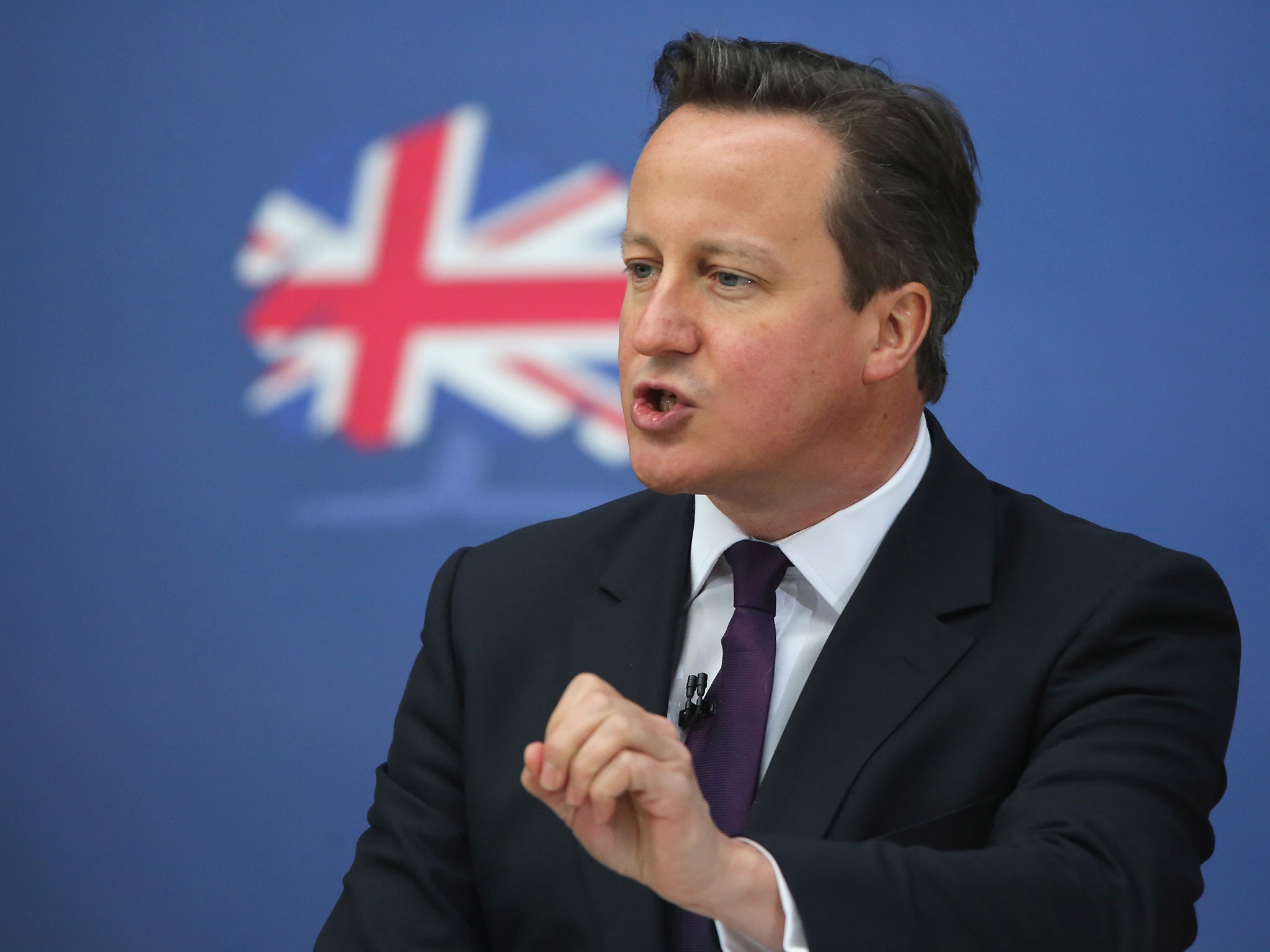Record levels of immigration to Britain set to become major headache for David Cameron
New statistics will bring more pressure to bear on David Cameron

In seven days’ time, David Cameron is likely to be presiding over a most unwelcome achievement: record levels of migration to Britain.
The latest figures showed that 318,000 more people settled in this country last year than left it, just 2,000 short of the high in 2005 after Britain had opened its borders to eight new EU members.
The updated statistics, to be released on 27 August, look certain to show net migration climbing above 320,000, casting yet more doubt on the Prime Minister’s ability to make significant cuts to the numbers coming to Britain.
These people are not desperate Syrians and Eritreans trying to smuggle themselves on to lorries at Calais.
The vast majority are migrants arriving in Britain entirely legally and they present Mr Cameron, who has repeatedly pledged to bring down immigration, with one of the biggest headaches of his second term in Downing Street. A former minister admits: “This issue will run and run all the way to the next election.” The political pressure he faces on the subject is acute and shows no sign of abating. Around three-quarters of the public believe immigration is too high and the issue is consistently named among voters’ main priorities.

Theresa May, the Home Secretary, last month revived Mr Cameron’s discredited promise from 2010 to cut net migration to below 100,000, telling MPs that the new Government was adopting “the same target”.
When the last migration figures were announced, Mr Cameron announced a battery of measures for reducing the total, and it is not impossible that still more will be detailed in response to next week’s statistics.
Already in train are moves to reduce the “pull factor” to Britain by forcing landlords to check the immigration status of their tenants and by making illegal working a criminal offence.
Mr Cameron has also signalled he wants tougher rules in place over the issue of visas to skilled non-EU workers, although his own immigration advisers have expressed reservations over the wisdom of the move.
One possible side-effect could be to halt the supply of foreign nurses and care workers to fill the jobs that Britons seem reluctant to accept.
Even Conservatives admit that initiatives like those wheeled out by Mr Cameron will only have a marginal impact on the headline figures, which show upward pressure in almost every category of migration, with increases in numbers coming to work, to join their families, to study and to seek asylum.
Meanwhile the surge in new arrivals from the European Union continues, with growing numbers of French and Italians joining the east and central Europeans working in Britain.
There are few levers which Mr Cameron can pull to stem the flow as freedom of movement is a fundamental principle of the EU – and there is no chance he can persuade his fellow leaders to compromise on that as he attempts to wrest back powers from Brussels to London.
Instead he has been forced to focus on trying to tighten EU nationals’ entitlement to benefits, although the vast majority of Poles and Romanians are drawn to Britain by the prospect of jobs rather than hand-outs.
Again, the move is likely to have only the slightest effect on migration levels, with any deterrent factor far outweighed by the forces bringing migrants to the UK.
Some of the two million EU-born workers in Britain are attracted by the flexibility of its labour market compared with other EU countries where trade unions wield more power, while others opt for the UK because they have a working knowledge of English.
Above all, they are impressed by Britain’s relative economic health compared to many of its European neighbours when deciding where to seek work. As one migration expert put it: “The easiest thing Cameron could do to get the numbers down would be to crash the economy.”
Join our commenting forum
Join thought-provoking conversations, follow other Independent readers and see their replies
Comments
Bookmark popover
Removed from bookmarks